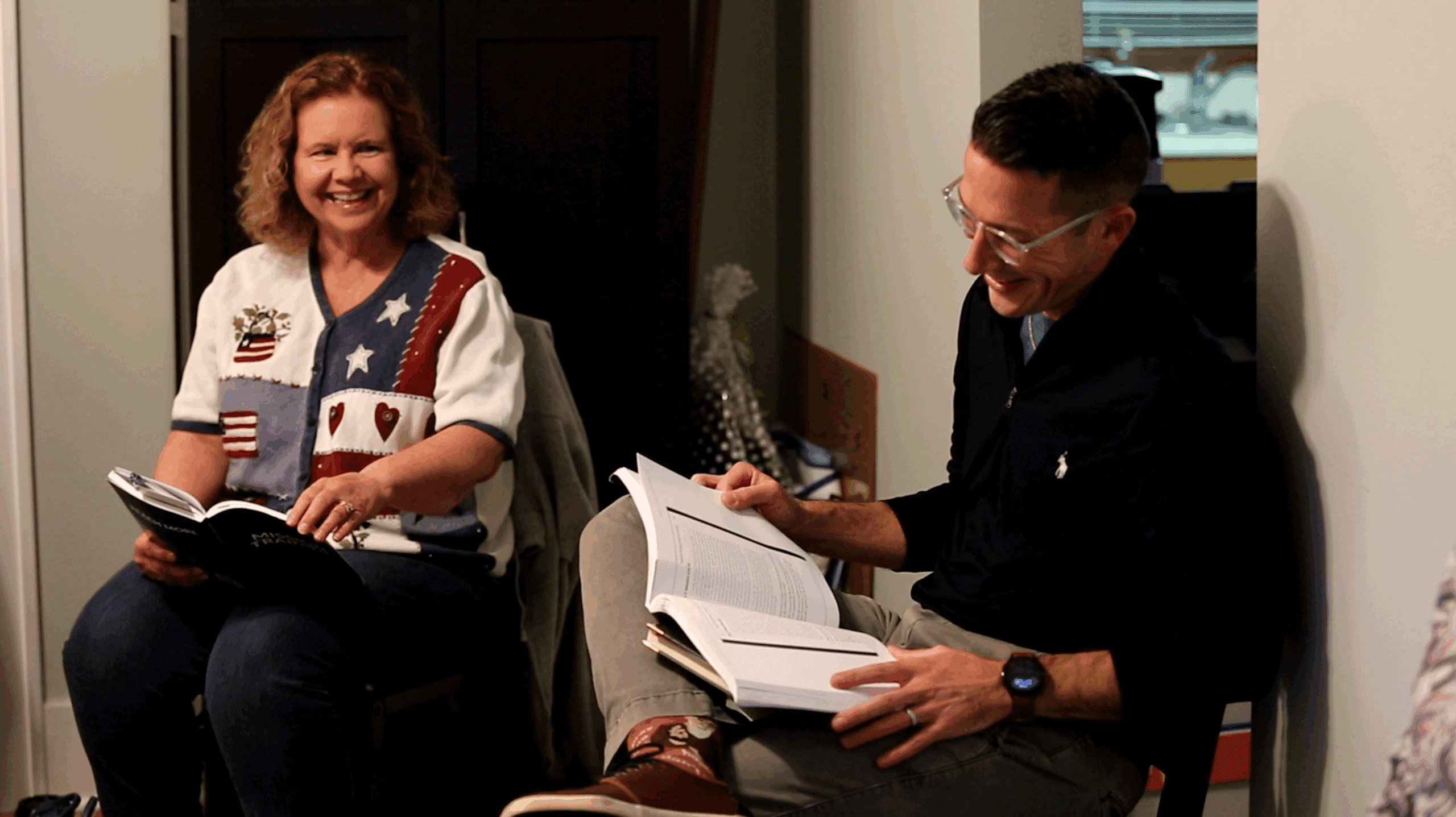As a facilitator of a small group, you play a really important role. You are the instigator of a lively, edifying, spirit-filled conversation around the most important words ever written down—God’s word in Sacred Scripture.
Let’s look at a few important aspects of facilitating well and some traps to avoid.
Remember: Your role is not to teach. The goal of a small group discussion is not simply to learn a lesson. Will we all learn things as we discuss God’s word? Absolutely. The Holy Spirit inhabits the space and moves in our hearts and minds.
But the goal is not merely mental ascent to ideas and truths. The goal is to awaken living faith in God and God’s Word which is a much deeper, more mysterious reality than we can predict or control.
Get more advice on leading a small group here.
So to best honor the freedom people need to ponder and reflect on God’s word together, small group discussions should feel and look more like a lively dinner conversation than a classroom with a teacher and a textbook.
Think of the flow of a great dinner conversation. It’s never just a monologue with one person teaching and lecturing. That’s not even a conversation at all. Nor is it just a dialogue where the conversation flows back and forth between one main person and another at a time, with one person being the authority.
Instead, we want what you might call a “group-alogue”, where the conversation bounces around every which way, from person to person. So, the facilitator should talk less, not more, than most other people.
Now, this is easier for some than for others. Many are just longing to display some of their wisdom and eloquence about the faith. And this often comes from a good place. They love to teach others about the goodness of Jesus and the Church, and that’s a good thing. They may even have a charism for teaching. Or a degree in theology. But a small group is simply not the place for teaching. And this takes great restraint at times.
So, what do you do when someone lobs out a provoking thought or question that stirs you up?
First, resist the temptation to launch a long or heavy theological response. Instead, take a deep breath and toss the question right back to them. “That’s a good question. Thanks for sharing. What do you guys think?”
We call it the redirect. Redirect questions back to the group—just like Jesus so often did. This doesn’t mean you can’t contribute anything to the discussion. You can participate just like they can. And you can and should share some of the wisdom of the Church. Just keep in mind that to build an environment of friendship and trust, it’s important for people to feel like they can freely share.
For more rules and tips on this topic, check out the second part of this article: How to Facilitate a Spirit-Filled Discussion Part 2.
André Lesperance is a Content Creator and Ministry Consultant at the Evangelical Catholic. The Evangelical Catholic’s mission is to equip Catholics to live out the Great Commission.





